
In a slight departure from your usual Metal Lungies fare, here’s a feature article on producer Marco Polo.
—-
Marco Polo records most of his music in Studio A, a room in his apartment where the ceiling is unfinished and the walls peel where they aren’t covered by J Dilla and Masta Ace posters. Across the hall is Studio B, a makeshift recording booth soundproofed by foam padding on the door.
“There are certain things in my setup that could be a little cleaner,” lamented Polo, but he added “Sometimes you don’t want your shit to sound clean. You don’t want it to sound like a Britney Spears record, you want it to sound like hip-hop.”
Light-haired and pale, Polo is tall and skinny with a shaved head and a protruding stubbled chin. Despite the growing pop influence in hip-hop today, the Canadian producer insists on making music for an audience that wishes it was still 1994.
Polo has reprised the classic one-rapper one-producer formula with Coney Island’s Torae for Double Barrel, an album reminiscent of the genre’s glory days.
But major labels have long since abandoned backing aspiring artists who make traditional hip-hop. Instead, Polo has gone the less glamorous independent route with both Double Barrel and his first album Port Authority. Polo records and produces from his meager home studio in Brooklyn with no regrets.
Polo, 29, whose real name is Marco Paolo Bruno, was born to Italian immigrants in Toronto. He moved to New York and now talks with only a hint of a Canadian accent. He usually has a cup of coffee or a cigarette in hand, or both. Opening a window at his apartment, Polo noted, “Feel free to smoke because I will be.”
“It’s a piece of shit,” said rapper Torae of the producer’s home studio, “but it makes some of the dopest hip-hop music I’ve heard in the last few years.”
Polo studied engineering and music production at the Harris Institute For The Arts where he first began serious production work. “When I got my student loan for Harris, I bought my first Mac and my first MPC2000XL. It’s the same one I use today that was in the studio. And when I got it, the first person to show me the basics of how to work it was my man Shylow who’s a rapper/producer/DJ from Toronto.”
Shylow was not impressed with Polo’s earliest work, “I thought 95 percent of what he was doing back then was garbage and I told him that shit right to his face.” Despite initial disappointment, Shylow saw potential: “Because I knew he had what it takes to be a dope producer, I kept it all the way real with him.”
DJ Linx, who hosts the number one college radio show in Canada and acts as Marco’s DJ, recalled meeting him at his going away party when he was leaving Toronto, “To get up and move from Toronto to New York – not a lot of people make that move.”
In 2007, Polo’s dedication paid off and he released his first album Port Authority on Rawkus Records. His follow up with Torae, Double Barrel, will be released on Duck Down Records come June. “Not too shabby for a Canadian kid,” said Polo.
“I think Marco has always had a love-hate relationship with Toronto,” said Linx. “Compar[ed] to New York or the West Coast, Toronto doesn’t seem to have the same quality of artists coming out or the same support for those artists and they’re not able to really build a name for themselves.” Shylow added, “I swear we’ll never grow until we all come together and start helping each other out the same way cats in NY and LA and Philly and everywhere else did to get where they are today.”
Polo’s aspirations exceeded what Toronto had to offer. He explained, “I’m trying to be international and worldwide with my music. I put too much time into it to be known in just one city and that’s why I moved to New York.” He added, “I feel like for a Canadian artist to be signed to Rawkus and now Duck Down — I feel like it’s an accomplishment.”
Double Barrel harks back to the gritty sound of hip-hop in the early 90s which has since been muscled aside by more pop-influenced music. Snarls Torae on the album’s title track, “And that’s why me and Marco got into this. / We wanted to give ’em an album to make ’em reminisce.”
Linx described the production on Double Barrel as “dark and aggressive and really street” whereas Polo’s older beats were “more positive and happier.” He attributed the change in Polo’s sound to a dearth of “the boom bap sound” in hip-hop today. “There’s not a lot of people doing it. It seems like almost a lost art form,” said Linx. “I think he got hungry and wanted to hear more of that stuff.”
In an online video, Polo gives a tour of his studio and quips, “I got a room full of 808s, but I can’t show you that,” referring to the Roland TR-808 drum machine. The remark comes as a jab at commercial hip-hop. “It’s just one of those new trendy things that a lot of producers are trying to mess with.”
Polo’s reluctance to make so-called “keyboard beats” and his adherence to sampling have distanced him from major label deals. While shopping for a home for Double Barrel, the only major label he met with was SRC Recrods. “They were definitely interested in messing with us. They saw the talent, but it would have entailed changing everything and we weren’t prepared to do that. I sample, that’s what I do.” The use of samples in hip-hop is costly and often a legal gray area in terms of licensing and royalties.
On his future, Polo said, “I came to the conclusion recently that my strengths are doing what I do. Whatever beats or production people have heard from me that they love – I wanna keep doing that.” He added, “I might feel pressure to make more money and make bigger moves, but I’m not willing to sacrifice my sound to do it.”


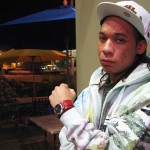


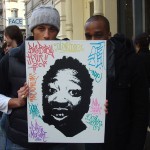








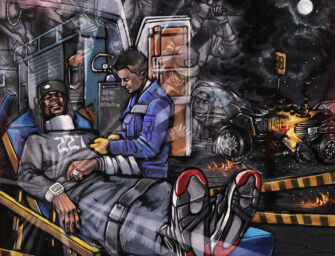
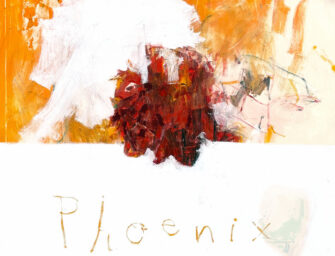

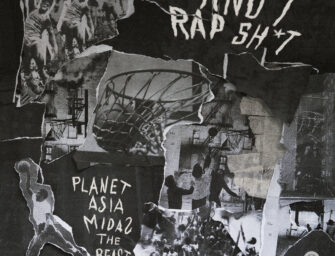
have you tried getting this published? it’s good
[…] Marco Polo […]